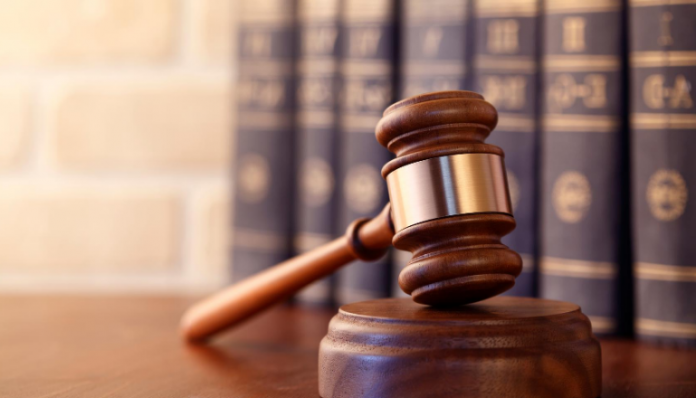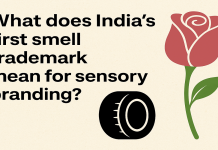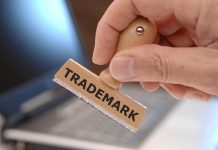This article is written by Mohd Aman Khan Afghani, pursuing Diploma in Intellectual Property, Media and Entertainment Laws from LawSikho. The article has been edited by Zigishu Singh (Associate, LawSikho) and Smriti Katiyar (Associate, LawSikho).
Table of Contents
Introduction
As we all know that the whole world is going through the wave of Covid-19 and this pandemic has impacted each and everyone’s life in one or the other way. People commonly in many countries like China and other Asian countries used to wear pollution filtering masks regularly but now they are more in use. Face masks can be seen being worn by people from around 10 years approximately, but now they are more common and in full use because of the Covid-19 pandemic. These masks have become an integral part of everyone’s life, especially in India, where the Government has even imposed fines for not wearing the Masks and even the police are vigilant regarding wearing masks and take quick action if they find people not wearing one. Among the different masks which people use these days the N95 Masks hold some special value and goodwill and hold a credible position in the minds of the people. It can be said that these N95 were in the news since pollution started to increase at the onset of the winter season and people were preferring these masks among all the other masks which are available in the market. The most common use of masks by people is for preventing dust particles and viruses from entering the body through the nose or mouth.
The reason for the high demand for N95 masks is because of their capability to cover the face in a proper way and to limit the particles from entering the human body.
In N95 Mask the ‘N’ stands for “Not-resistant to Oil” and in N95 Mask the respirator is said to block around 95 % of very small particles. It is also said that the longer any person wears an N95 mask the more efficient it becomes in filtering and limiting out the particles. It is also recommended that the N95 mask should not be worn for more than 8 hours. N95 Mask was developed in the USA in 1972 by a Company named ‘3M’.
The story of the N95 mask
The N95 Mask was launched by 3M in 1961, and there is a very interesting story behind the invention of this mask. T. Sara Little Turnbell who is a former décor editor for House Beautiful Magazine started consulting with the 3M’s gift wrap division. She saw that the Doctors are using the Flat tie-on Masks when she used to visit the Hospital to see her family members who were in the hospital due to their medical conditions. She came up with the idea of a Mask that would cover the nose and mouth properly and originated the design of a “Bubble” surgical mask. The above mask was also rebranded by 3M because of the reason that this Mask could not block the pathogens. In the 1970s 3M developed a single-use N95 dust respirator, which is in the market even today and is used by people.
Understanding the term trademark
Trademark can be said to be a mark or symbol or logo or wordmark or a device with which normal consumers can find out as to which manufacturer it belongs. It helps to identify the origin of the product or service and it also helps in distinguishing the goods or services offered by an entity from the goods and services being offered by the other entity. A Trademark helps in the creation of goodwill of an entity in the Market. A person or an entity which is selling goods or services in the market with a Trademark acquires the exclusive right to use that Trademark for selling his goods and services and that rights which are acquired is being recognized as the property of that person or entity and is being protected by Trademarks Act, 1999 and also under the Common Law. The basic requirement for protection is registered under the Trademarks Act and the Trademark can be registered under the Trademarks Act when it has a distinctiveness and is not generic and is capable of differentiating the goods or services of one person or entity from that of the other person.
Case analysis on N95 as the trademark
In Sassoon Fab International Pvt Ltd Vs. Sanjay Garg and Anr, the Intellectual Property Appellate Board, Delhi (“IPAB”) had given a stay order on the registration and protection of the N95 Trademark. The IPAB has given the reason that N95 is a generic term that is very much in use in the market for masks and therefore it cannot be registered as Trademark and no single person or entity can have an exclusive right over it.
In the above case, Mr Sanjey Garg has applied for the registration of the Trademark and in fact, he got the Trademark N95 registered under Class 10. After the above event, Sassoon Fab International Pvt Ltd filed an application for rectification before IPAB under Section 52 of the Trademarks Act, 1999 and asked for the cancellation and interim stay on the operation of the above trademark registered in favour of Mr Sanjay Garg.
The IPAB had allowed the Application of Sassoon Fab International Pvt Ltd and held that the term “N 95” describes the attributes and qualities of a mask and its filtering capacity and therefore the term “N95” is considered to be a generic term and could not be registered.
It is a settled position in Trademark law that the Trademark which tells about the attributes of any product cannot be registered as Trademark and in the above case, it is very much evident that the term “N95” tells the attributes of a Mask and therefore it’s a generic term. Such generic terms could not be registered as they fall under Section 9(1) of the Trademarks Act, i.e. under the Absolute Grounds of Refusal.
It was even held by the Board that the action of Mr Sanjay Garg clearly shows his malafide intention to get benefit out of the aforesaid Trademark as he was nowhere connected to the Trademark Industry and he was not even using the same for marketing or for any kind of business activities or for earning profit etc. Even the act of Mr Sanjay Garg shows that he was willing to monopolize the term “N95” so that he can misuse it according to his will and that could even have an adverse impact in the times of this Covid Crisis.
Precedents referred by the IPAB
Cadila Healthcare Ltd vs. Gujarat Cooperative Milk Marketing Federation Ltd and Ors., 2009
In the above case, it was held that the generic term can only be registered in the case where it can be shown that the distinctive character has been acquired by it and it has a distinct identity in the minds of the general public and that would depend on case to case basis and therefore generally the generic term or maker is not at all entitled for protection.
Jain Riceland Pvt. Ltd. vs. Sagar Overseas, 2016
In the above case also the Delhi High Court has held that the generic term cannot be registered as a trademark.
Nestle’s Products Ltd. Vs. P. Thankaraja and Anr.
In the above case, the Madras High Court has held that the term “INSTEA” cannot be registered as a trademark as the same express the attributes of a product that is telling about the instant tea.
ITC Ltd. Vs. Nestle India Limited, 2013
In the above case, the High Court of Madras has held that the term “Magic Masala” cannot be registered as a trademark as it is a generic term and therefore cannot be monopolized by a single entity. It was also held by Madras High Court that Magic Masala is used by many players who are operating in the Food Industry and therefore registering it as a trademark will give a monopoly to a specific entity which would be unfair to the other entities which are operating in the Food Sector.
Conclusion
So conclusively it can be said that the term “N95” is a generic term that is very much in use in the market for masks and if in case it is registered as a trademark in favour of a particular entity then it would be unfair to the other entities or players which are operating in the market for masks and in this way there are huge chances that the entity in whose favour it is registered would have a monopoly over the term “N95” and this monopoly will adversely affect the competition in the market for masks. As we know that “N95” is a descriptive term and is being used extensively by many Hospitals and Industries and by the common public in the times of this Covid-19 and if in case a single entity would get a monopoly on such term then that would definitely have an adverse impact and it should also be noted that in the times of this Covid Wave, N-95 mask is an essential commodity and monopoly over such term which is used to denote an essential commodity cannot be allowed in any manner as it would have grave and hazardous repercussions.
References
- https://www.livelaw.in/pdf_upload/pdf_upload-385499.pdf
- https://www.scconline.com/blog/post/tag/ipab/
- https://thelawtree.akmllp.com/verdict/phrase-n-95-is-a-generic-term-says-ipab/
- http://www.mirandah.com/pressroom/item/india-registering-n95-as-a-trade-mark-to-mask-malafide-intent/
- https://spicyip.com/2020/12/spicyip-weekly-review-november-30-december-6.html
- https://illuminip.com/f/ipab-puts-restrictions-on-trade-mark-registration-of-%E2%80%9Cn95%E2%80%9D
Students of Lawsikho courses regularly produce writing assignments and work on practical exercises as a part of their coursework and develop themselves in real-life practical skills.
LawSikho has created a telegram group for exchanging legal knowledge, referrals, and various opportunities. You can click on this link and join:
https://t.me/joinchat/J_0YrBa4IBSHdpuTfQO_sA
Follow us on Instagram and subscribe to our YouTube channel for more amazing legal content.
 Serato DJ Crack 2025Serato DJ PRO Crack
Serato DJ Crack 2025Serato DJ PRO Crack











 Allow notifications
Allow notifications


